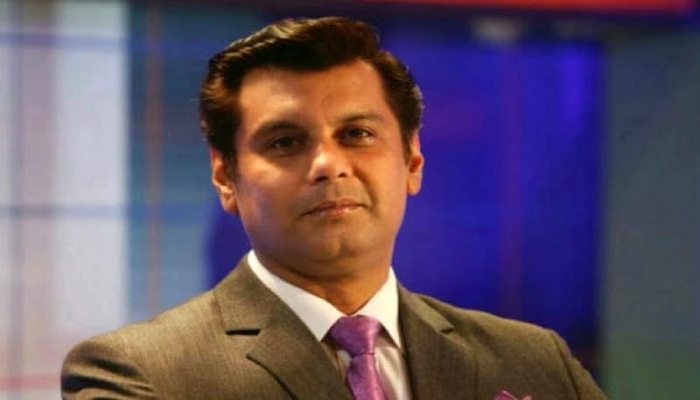The encirclement of China
0 comments | by Abdus Sattar

The simmering tension between the US and China over the trade issues and the sabre-rattling in the South China Sea have prompted Washington to tighten noose around Beijing’s neck.
It seems that the sole superpower is now carrying out the encirclement of the communist country which emerged as a threat to the US hegemony following the 1949 revolution. The revolution had created consternation in the Western world that regarded the drift of China into a socialist camp as a big defeat for the free market camp led by the US. The US only recognised the People’s Republic during the 1970s.
It is not only these two issues that have plagued the ties between the two giant powers but the issue of Huawei, the situation in Hong Kong, the alleged Chinese crackdown against the Uighur Muslims in Xinjiang and the coronavirus pandemic have also been some of the factors that prompted the two heavily armed states to trade allegations. The situation turned ugly in recent weeks when the US ordered the closure of a Chinese consulate in Houston which was reciprocated by China which shut down an American consulate in China. The American administration has even started taking actions against Chinese citizens who have been staying in the US for various purposes. Recently, the FBI launched a crackdown against Chinese researchers at American universities, arresting those with suspected links to the People’s Liberation Army (PLA). One of the researchers temporarily took refuge in the consulate in San Francisco, before surrendering. The administration is also coming down hard on American academics and businessmen who are being put under scrutiny for ties with China. They have been warned to come clean under the Foreign Agents Registration Act. These extreme measures seem to have further strained the ties between the two economic powers.
US Secretary of State Mike Pompeo has been visiting different capitals to ratchet up support against Beijing for some time, claiming that the communist country is a big threat not only to the US but the entire free world. Pompeo went to the extent of declaring China a new tyranny. Addressing a gathering at Richard Nixon presidential library last week the secretary of state said, “The free world must triumph over this new tyranny.” He appeared to be suggesting that the US efforts to normalize ties with Beijing did not yield the desired results. “...The truth is that our policies – and those of other free nations – resurrected China’s failing economy, only to see Beijing bite the international hands that fed it.”
Chinese officials believe that the secretary has been on a smear campaign against the Communist Party of China, hurling false allegations against the party that is the bedrock of the modern Chinese state. Beijing asserts that the Trump administration is carrying out this malicious propaganda against China to hide its incompetence that was exposed during the pandemic. The other motives, for the Chinese analysts, seem to be the upcoming presidential elections and Trump using anti-China rhetoric to win the support of hawkish elements within the Republican Party. Trump’s hard line has also prompted democratic candidate Joe Biden to be harsh regarding China. So, in the US before the November elections politicians are not discussing why the US failed to protect its citizens against the onslaught of the pandemic despite spending over $11000 per person. The massive unemployment is not catching the attention that it deserves. Homelessness and falling living standards do not seem to be bothering the political pundits of the second largest democracy – but it is China and its alleged machinations that have dominated political debates in the land of freedom. American diplomats have been warning their traditional allies against possible domination by China, declaring it a potent threat for the free world. They apprehend that China is seeking to replace the US as the global leader. Washington has managed to secure the support of the UK, which has also taken punitive action against China and in recent weeks it has also become a sharp critic of Chinese human rights record. London has also infuriated Beijing by offering concessions to the people of Hong Kong, who, the West asserts, are facing the repression of Chinese authorities.
Many analysts believe that the US administration is carrying out an encirclement of China – not only physical but economic, diplomatic and political as well. Diplomatically, the US is trying to pressure its allies to adopt a stringent position. It is likely to win the support of the Philippines, Vietnam and other states of the region that are furious over the Chinese position on the South China Sea. India has already been hobnobbing with Washington in a bid to benefit from a situation that might create problems for China. The UK seems to be throwing its support behind the sole superpower’s moves. Italy and Hungary that recently enjoyed good ties would have been in an ambivalent situation. The same could be said about Pakistan and Afghanistan that have good ties with the US and China simultaneously. France and Germany are likely to resent the belligerence of the US but if the situation turns ugly, they might reluctantly side with Washington.
Unlike the USSR which was also encircled by the US in the past, China does not have any ideological friends. Beijing did not claim to lead the international proletarian revolution and made no effort to support any radical change against the capitalist world. So, it ended up having friends but not comrades or close allies that are ready to sacrifice their own interests for the lofty ideological mission of the global working class. For instance, Cuba took a great risk by allowing the USSR to install missiles on its soil. No such country is ready to sacrifice its own interests for China. Just trade relations do not forge a strong sense of friendship. For instance, China is one of the biggest investors in the UK but when it came to picking sides, London did not lose any time in declaring its allegiance to the US because it is the bond of free market ideology and Western hegemony that dictated the decision.
Unlike the Soviet economy, Chinese trade is heavily dependent on the West. Therefore, the wise course for Beijing would be to avoid any further straining of the ties with the free world – otherwise, the encirclement might scupper its chances of becoming a global military and economic power.
The writer is a freelance journalist.
Email: egalitarianism444@ gmail.com





